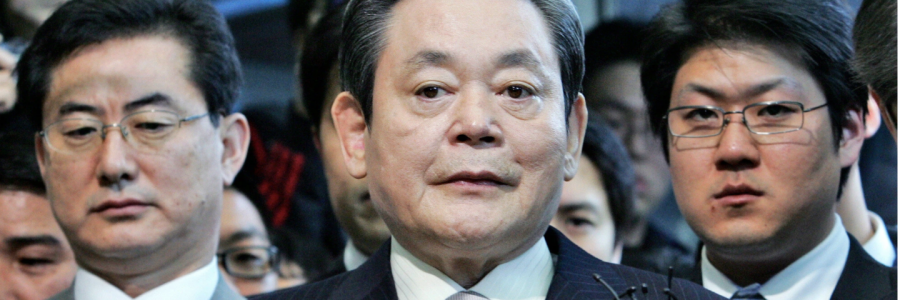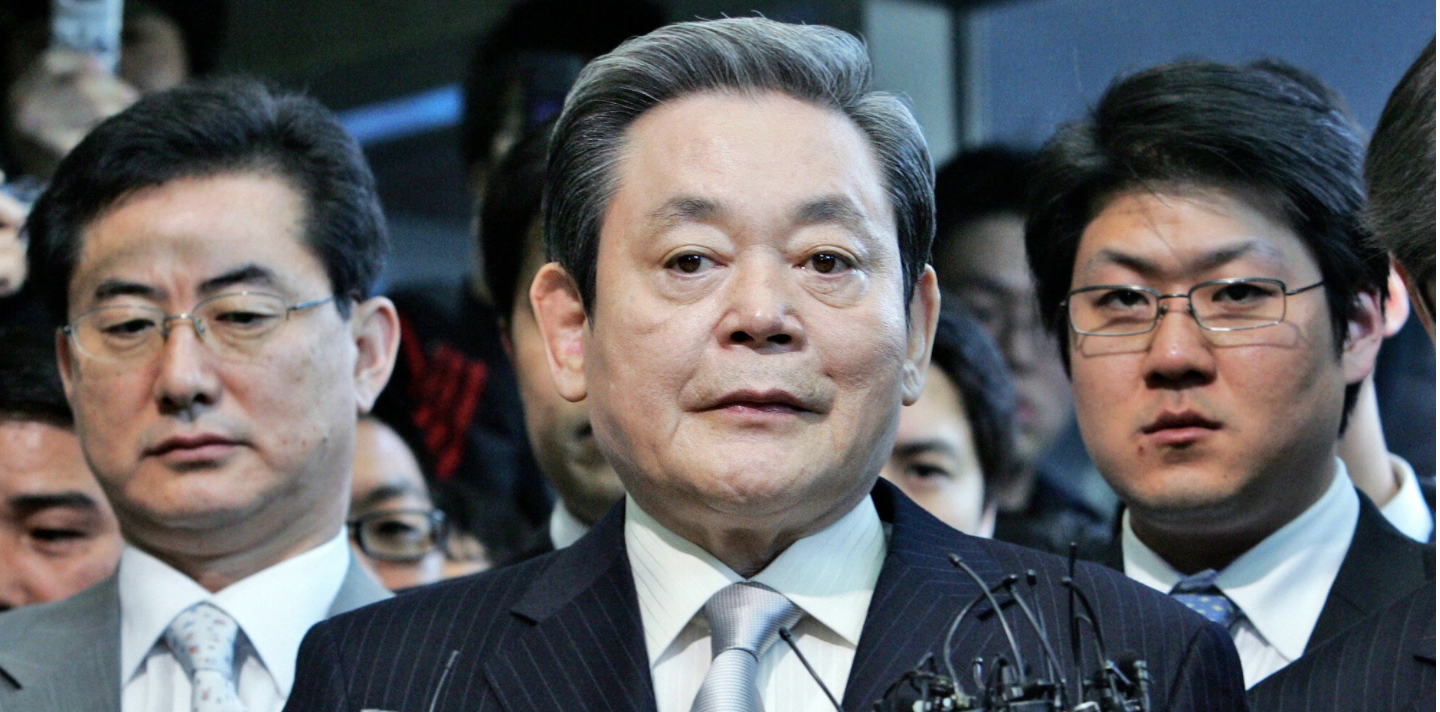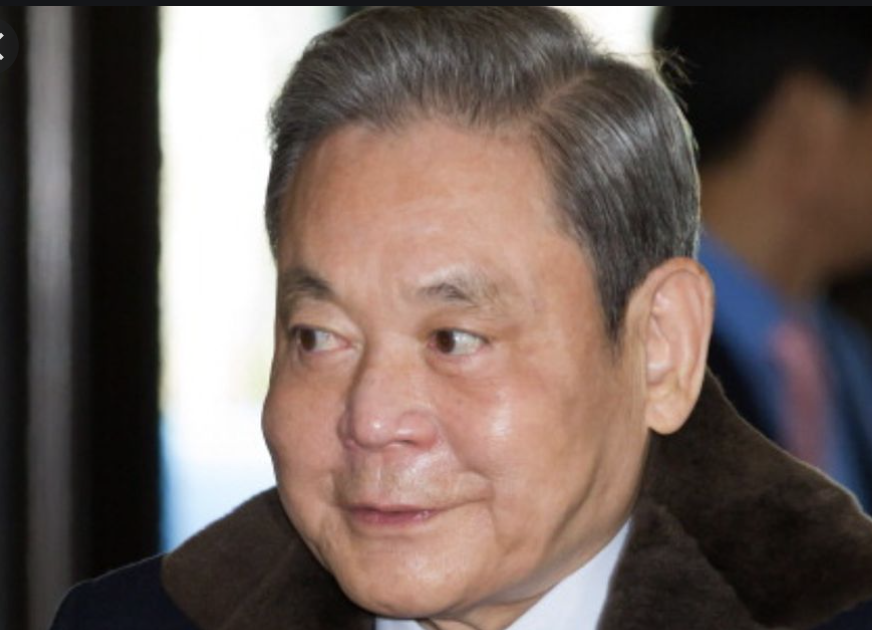
Lee Kun-hee Samsung chairman dies aged 78


South Korea’s Samsung Group Chairman Lee Kun-hee died on Sunday aged 78. He helped to grow his father Lee Byung-chull’s noodle trading business into South Korea’s biggest conglomerate.
Mr. Lee who was Samsung’s big thinker, the provider of grand strategic direction was convicted and pardoned twice for white collar crimes. Lee Kun-hee, who had been incapacitated since a heart attack in 2014, built Samsung into a global giant of smartphones, televisions and computer chips.
At hlem in 1987, after the death of his father and the conglomerate’s founder Lee Byung-chul, many in West only knew Samgung as maker of cheap televisions and unreliable microwaves sold in discount stores. But Lee Kun-hee propelled the company relentlessly up the technology ladder by surpassing Japanese and American rivals to become a pacesetter in memory chips, dominated flat-panel displays as screens became slimmer and made Samsung a world innovator. Samsung also conquered the middle-to-high end of the mobile market as cellphones became powerhouse computing devices in the 2000s. Samsung today is the cornerstone of South Korea’s economy and one of world’s top corporate spenders on research and development.Mr Lee was the chairman and CEO of the Samsung Electronics from 1998 to 2008, then Samsung Electronic chairman from 2010 until his death was South Korea’s richest man.
He and his family members used a web of ownership arrangements to exert influence over the other companies under the Samsung umbrella.
Lee Kun-hee was born in Daegu, in Japanese-occupied Korea, on Jan 9, 1942 to Park Doo-eul and Lee Byung-chul who had founded Samsung a few years earlier as an exporter of fruit and dried fish. The younger lee was a wrestler in high school and graduated from Waseda University in Tokyo in 1965, then went on to study master’s program at George Washington University although he did not receive a degree. Samsung first grew by dominating the consumer staples, like sugar and textiles and later expanded into insurance, shipbuilding, construction, semiconductors and more.
Lee started his career at Tongyang Broadcasting Company, a Samsung affiliate at the time, in 1966 and worked at Samsung C&T the conglomerate’s construction and trading firm before being named vice chairman of Samsung group in 1979.
In 1987, he took from his father a fixation on planning for the far future and added an overlay of existential fear and ever-present crisis that persists among Samsung brass to this day as he once said in an interview with Frobes, “If we don’t move into more capital and technology intensive industries our very survival may be at stake as we are in a very important transition period”.
In 1993, he summoned scores of Samsung Electronic managers to a luxury hotel in Frankfurt and for days, lectured the executives, urging them to bury old ways of working and thinking “Change everything, except your wife and children. Samsung would focus on improving product quality instead of increasing market share ”.
In1995, he visited a Samsung plant in the town of Gumi after a batch of cellphones was found to be defective. The Gumi factory’s 2000 workers gathered in a courtyard and were made to wear headbands labelled “Quality First”. Mr Lee and his board of directors sat under a banner that read “Quality is My Pride”, and together they witnessed $50 million worth of phones and fax machines and other inventory smashed to bits and set ablaze as the employees wept. Mr Lee started an automobile unit in the mid-1990s, Samsung Motors which was sold off in 2000.
By 2007, Lee had identified the next looming crisis for Samsung, as China was ascendant in low-end manufacturing while Japan and the West still led in advanced technologies with Samsung sandwiched in between.
